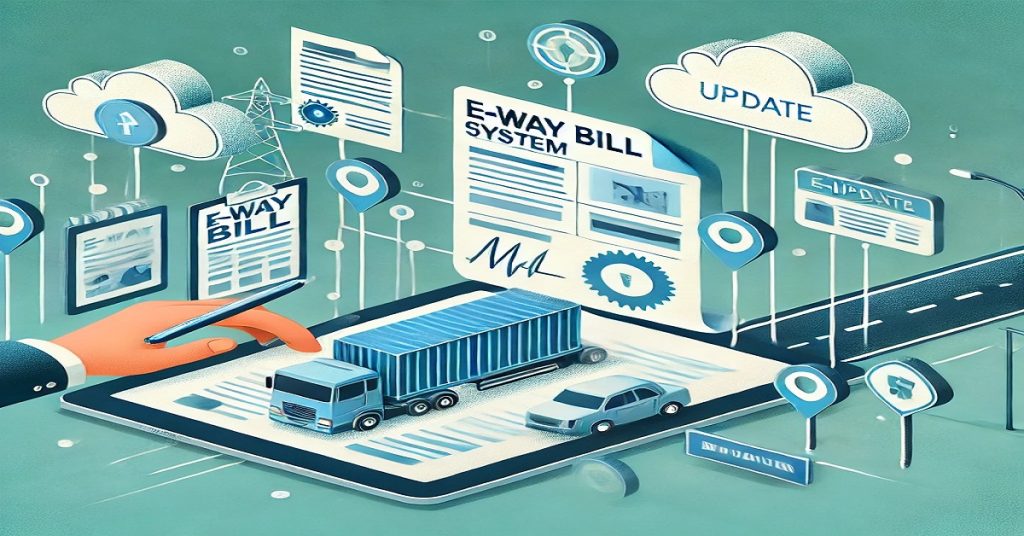Summary

The recent updates from the GST portal regarding e-way bill generation and invoicing, specifically highlighting a new advisory issued on December 17. The advisory states that as of January 1, 2025, the time limit for generating e-way bills from the date of the base document is set to 180 days. This means that if a tax invoice is issued on April 1, 2025, the corresponding e-way bill must be generated by September 30, 2025. The common queries and confusion surrounding whether goods can be dispatched without an e-way bill and clarifies that while the generation period has been restricted, it does not permit the movement of goods without an e-way bill. The importance of adhering to the regulations and the consequences of failing to do so, including potential penalties.
Highlights
📅 New E-way Bill Timeline : Starting January 1, 2025, e-way bills must be generated within 180 days from the document date.
❓Common Confusion : Many users are unclear about whether they can dispatch goods without an e-way bill; the video clarifies this misconception.
📜Regulatory Changes : The advisory introduces a fixed generation period for e-way bills, replacing the previous unlimited timeframe.
⚖️Compliance Importance : Emphasis on adhering to invoicing and e-way bill generation rules to avoid penalties under GST regulations.
🕒Extension Requests : Guidelines for requesting extensions for e-way bill generation are noted, including deadlines and frequency.
Key Insights
📉 E-way Bill Generation Restriction : The advisory restricts the generation of e-way bills to 180 days from the invoice date, which aims to streamline compliance and reduce fraud. This change may require businesses to adjust their invoicing and logistics strategies to ensure timely generation of e-way bills.
🔍Clarifying Misunderstandings : The video addresses misconceptions about the ability to dispatch goods without e-way bills. It clarifies that compliance with e-way bill regulations is mandatory for legal movement of goods, reiterating that the advisory does not exempt businesses from this requirement.
🚧Consequences of Non-compliance : Businesses that fail to comply with the new e-way bill generation timeline risk penalties under Section 129 and potential issues with tax credits, making adherence crucial for financial health.
⏱️Timeframes for Extensions : The newly introduced limits on the duration for which extensions can be requested for e-way bills emphasize the importance of timely action. Businesses are reminded to file requests within 24 hours to avoid complications.
📊Broader Regulatory Trends : The shift from unlimited to limited timeframes across various tax compliance measures indicates a broader trend in government policy aimed at increasing accountability and efficiency in tax collection.
🗃️Importance of Documentation : The need for maintaining proper documentation and timely generation of e-way bills reinforces the importance of organized record-keeping in business operations.
FAQs
Q1: What is the new time limit for generating e-way bills?
A1:Starting January 1, 2025, e-way bills must be generated within 180 days from the date of the base document.
Q2: Can goods be dispatched without an e-way bill?
A2: No, all goods must be accompanied by a valid e-way bill during dispatch to comply with GST regulations.
Q3: What happens if I miss the e-way bill generation deadline?
A3:Failure to generate an e-way bill within the stipulated time may lead to penalties under GST laws.
Q4: How long do I have to apply for an extension for an e-way bill?
A4:Businesses can apply for an extension within 24 hours of the original generation period.
Q5: Where can I find more information about GST compliance training?
A5: You can learn more about the upcoming GST course by visiting the GST platform website or downloading their app.
Core Concepts
E-way Bill Regulations : The primary focus of the video is the new regulations surrounding the generation of e-way bills under the GST framework. The introduction of a fixed 180-day period for e-way bill generation from the date of the base document marks a significant shift in compliance requirements for businesses.
Compliance and Penalties : The necessity for businesses to comply with the e-way bill regulations, detailing the penalties that may arise from non-compliance. It emphasizes the need for timely invoicing and documentation, which are critical for legal compliance under the GST Act.
Clarification of Misunderstandings : The common misconceptions about the e-way bill process, particularly regarding the legalities of goods movement without proper documentation. By addressing these misunderstandings, the video aims to foster better compliance and awareness among businesses.
Regulatory Evolution : The changes discussed reflect a broader trend in government regulation, where unlimited timeframes are being replaced with stricter guidelines to enhance accountability and efficiency in tax administration. This evolution necessitates that businesses remain vigilant and proactive in their compliance efforts.
Also read our other related articles:https://gstplatform.com/changes-in-gstr3b-from-jan-25/